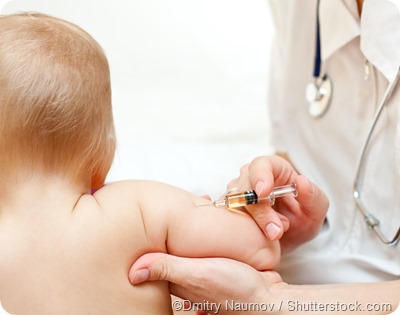Haemophilus influenza type b (Hib) is a bacterium that can cause serious invasive diseases, particularly in children. Hib usually affects children under the age of five years, but it can also cause illness in adults with certain medical conditions.
Before the introduction of routine Hib immunization, Hib was the most common cause of meningitis in children under the age of five in the US.
Hib meningitis causes death in as many as one in 20 children with the condition and one fifth of children who survive it suffer from permanent brain damage, seizure or loss of hearing. Today, Hib infections are rare and usually affect adults with underlying, chronic illnesses rather than children.
Other life threatening conditions the infection can cause include the following:
- Epiglottitis – infection of the flap that lies over the opening to the trachea
- Pneumonia – lung infection
- Septicemia – blood infection
- Cellulitis – skin infection
- Septic arthritis – joint infection
- Pericarditis – infection of the fluid-filled sac that surrounds the heart
- Osteomyelitis – bone infection
The Hib bacterium is spread through contact with mucus or droplets of fluid from an infected individual, usually through sneezing or coughing.
Hib (Haemophilus influenzae type b) vaccine
Vaccination
Babies are offered the vaccine as a part of routine care and since its introduction, the rates of Hib diseases have fallen by almost 100%. There are several different brands of vaccine and depending on which one is used, babies receive either three or four separate doses.

The vaccine should not be given to any child aged under 6 weeks and the doses that are usually recommended are as follows:
- First dose at two months of age
- Second at four months
- Third at six months of age (if required, depending on brand)
- Booster at 12 to 15 months
The vaccine is administered as part of a combination vaccine, which means two or more different types of vaccine are given in one shot to protect against more than one illness.
The vaccine is not usually required for people older than five years, although older children may be vaccinated if they have asplenia or sickle cell disease and are due to undergo an operation to remove the spleen.
People may also be vaccinated after having had a bone marrow transplant or if they are HIV positive. People who are only mildly ill can receive the vaccine, but individuals who are moderately or seriously unwell are advised to wait until they have recovered.
Risks associated with vaccination
As is the case with any medication, the Hib vaccine is associated with the risk of side effects. These are usually mild and resolve independently, although, in rare cases, the side effects are severe. Usually, people who receive the vaccine do not experience any problems.
However, mild problems that may occur include fever, redness, swelling and warmth at the injection site. These problems usually start soon after administration of the vaccine and last up to two or three days.
Although severe allergic reactions to the vaccine are very rare and estimated to occur in less than one in a million cases, there is a very remote risk of such reactions occurring. Anybody who has previously experienced a life-threatening reaction following a previous Hib shot should not be given the injection. The person administering the shot should be made aware of any severe allergies.
Signs of a severe allergic reaction include the following:
- Swelling of the face and throat
- Hives
- Breathing difficulty
- Rapid heart rate
- Weakness
- Feeling dizzy
If a severe allergic reaction is suspected, the person should be taken to the nearest hospital and the reaction reported to the Vaccine Adverse Event Reporting System, a surveillance system that has been set up to help identify any safety issues with vaccines.
Further Reading
Last Updated: Jan 2, 2023